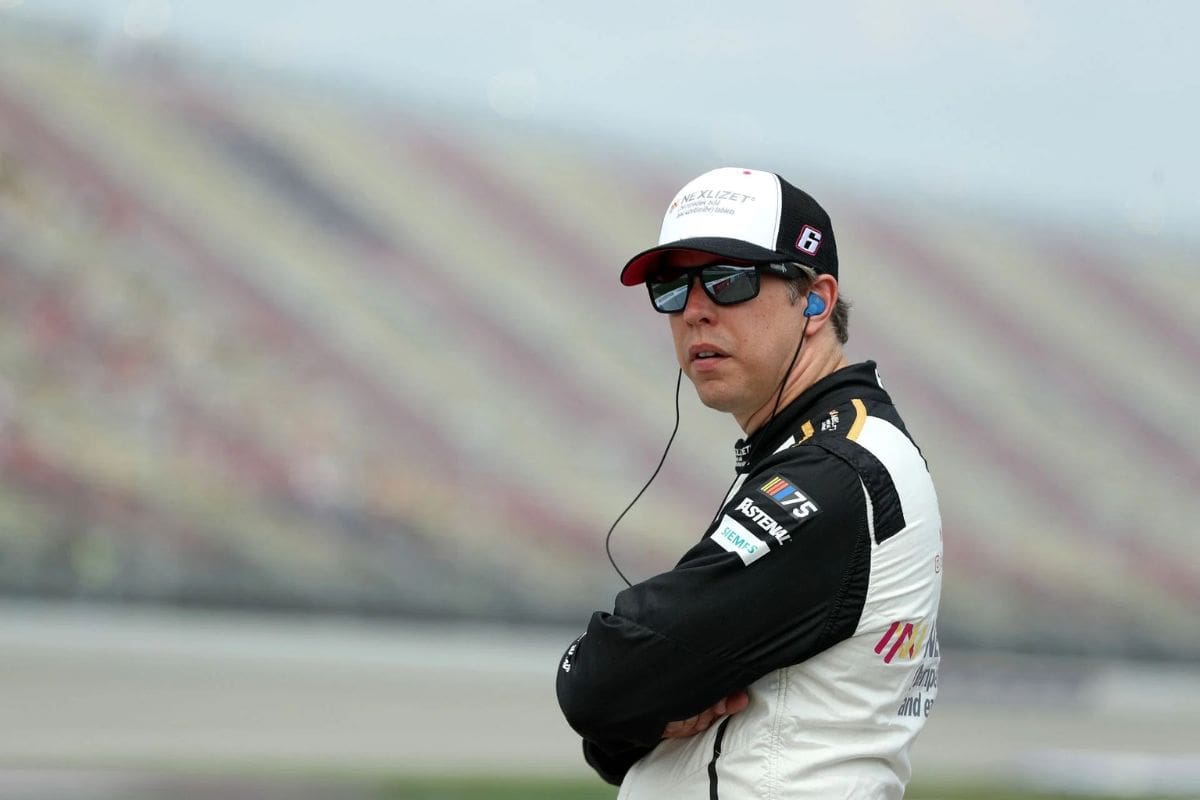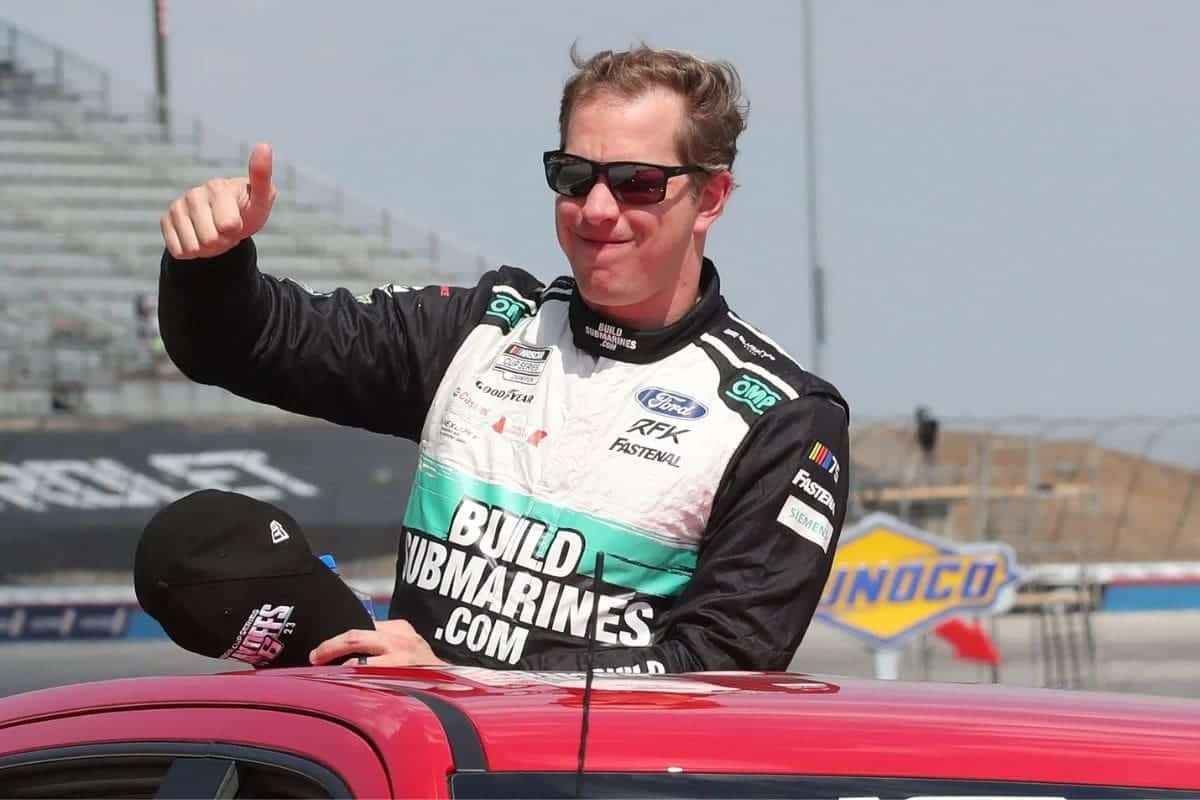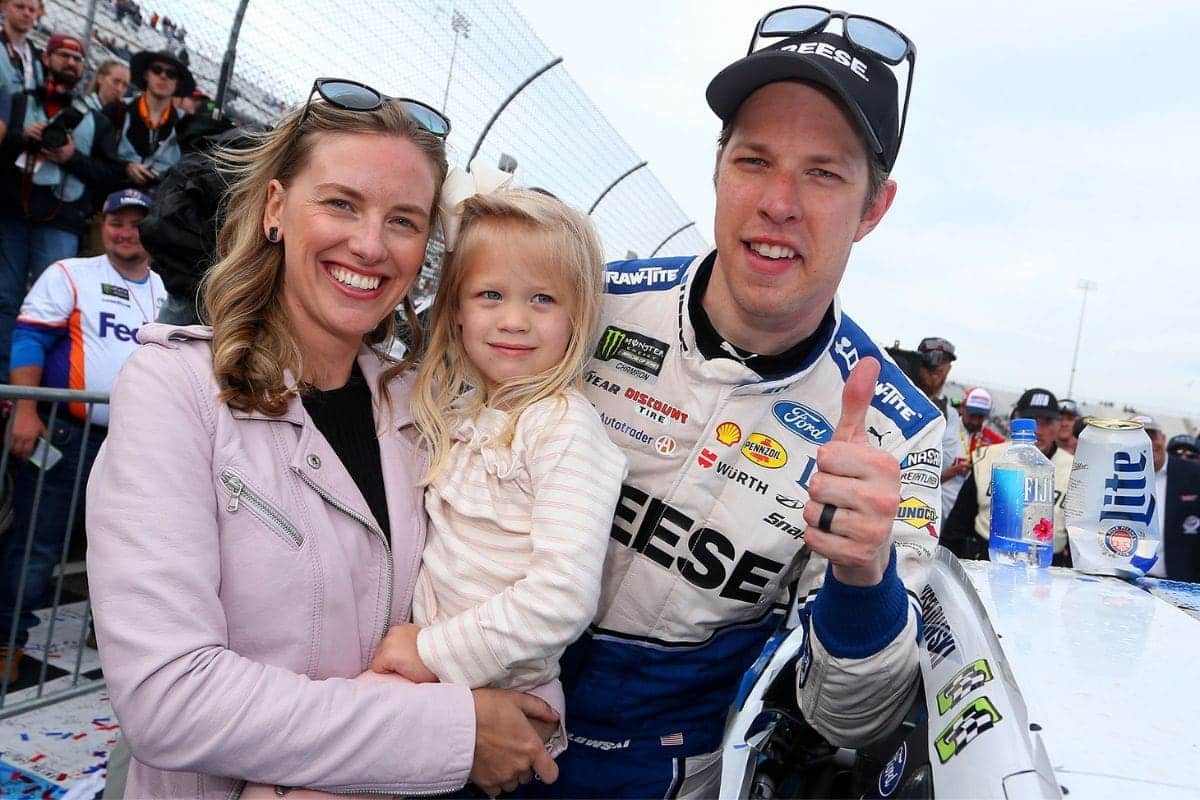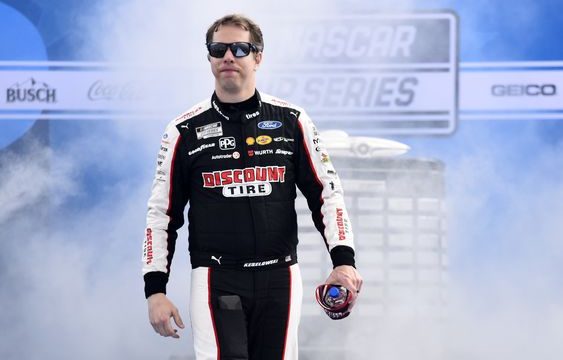Brad Keselowski Casts Doubt on NASCAR: Brad Keselowski‘s recent remarks casting doubt on the NASCAR charter deal have sparked significant debate within the racing community, drawing attention to underlying issues concerning revenue sharing and team valuation. His skepticism is not an isolated sentiment but rather a reflection of broader discontent among team owners who question the current system’s ability to guarantee financial sustainability and equity. As discussions continue, the need for a transparent and mutually beneficial solution becomes increasingly apparent. This situation raises essential questions about the future direction of NASCAR’s financial and operational strategies, leaving stakeholders and fans both interested in clarity and consensus.
Key Highlights
- Brad Keselowski’s concerns highlight broader discontent among team owners about the proposed NASCAR charter deal.
- Critics question the charter system’s efficacy amid ongoing financial struggles and revenue distribution issues.
- Team owners are advocating for a more equitable share of media rights revenue and better financial sustainability.
- There is unease in the NASCAR community about the competitive balance and governance powers under the current charter proposal.
- NASCAR is cautiously negotiating changes, balancing diverse interests while addressing conflicts of interest and financial equitability.
Charter System Controversy
The introduction of the charter system by NASCAR, aimed at enhancing team value through revenue sharing, has sparked significant controversy regarding its general efficacy. This system was designed to create a more sustainable economic model for teams by guaranteeing them a share of the sport’s revenue, thereby increasing the intrinsic value of each team. Yet, despite its noble intentions, the outcome has been far from universally accepted.
Critics argue that the charter system has not lived up to its promises, pointing to ongoing financial struggles faced by many teams. The discontent was further highlighted when NASCAR’s latest proposal, issued on Tuesday, met with tepid responses from the teams. This reaction emphasizes the pervasive dissatisfaction and the broader issues at play.
A primary point of disagreement lies in the distribution formula of the revenue sharing. Many smaller teams feel marginalized, arguing that the system disproportionately benefits the larger, more established teams. This, they claim, exacerbates the financial disparity within the sport, rather than alleviating it.
Additionally, the system’s rigid structure has been criticized for stifling innovation and competitive balance, as teams with greater resources continue to dominate.
Moreover, the lack of transparency in how revenue is allocated has been a persistent grievance. Teams are often left in the dark about the criteria used to determine their share, leading to suspicions and accusations of favoritism. This opacity undermines trust in the system and fuels the ongoing debate about its fairness and effectiveness.

Concerns Surrounding Revenue Sharing
Revenue sharing remains a contentious issue, with teams arguing that the current distribution model—allocating 65% to tracks, 10% to NASCAR, and only 25% to the teams—fails to reflect their financial contributions and needs. This structure, established under the media rights deal, has prompted considerable debate among team owners, who contend that their share is disproportionately low given the escalating costs associated with fielding competitive race cars.
Teams’ financial sustainability heavily relies on sponsorships, which constitute a significant portion of their earnings. However, the volatile nature of sponsorship deals and the increasing costs of technology, personnel, and logistics place teams in a precarious financial position. The existing revenue distribution model exacerbates this imbalance, as the larger share allotted to tracks and NASCAR effectively limits the financial resources available to teams. This disparity raises questions about the long-term viability of the current framework.
The dissatisfaction among team owners is not merely a matter of revenue percentages but also reflects broader concerns about the financial ecosystem within NASCAR. The teams argue that their role in generating the sport’s excitement and fan engagement warrants a more equitable share of revenue. They posit that a revised revenue-sharing model could promote greater financial stability and encourage further investment in the sport.
Moreover, the debate over revenue sharing highlights the need for a more collaborative approach in negotiating future agreements. Ensuring that teams receive a fairer portion of the revenue could potentially lead to improved competitiveness and innovation within the sport.
Brad Keselowski’s Perspective and Dissatisfaction
Brad Keselowski, owner of RFK Racing, recently expressed his concerns regarding the proposed charter deal, subtly highlighting a broader discontent among team owners. Keselowski’s remarks, while measured, reflect a detailed critique of the current state of negotiations, suggesting that the proposed changes may not adequately address the underlying issues faced by teams.
Keselowski’s primary apprehensions revolve around the financial implications and operational sustainability of the new charter system. The RFK Racing owner articulated that the current proposal might not sufficiently balance the interests of all stakeholders, particularly the team owners who are crucial to the sport’s ecosystem. His comments emphasize a critical assessment shared by several other key figures in the NASCAR community.
“I haven’t formed a strong opinion yet,”
“I would like a little bit more time before going deep and record. But it seems like things continue to progress. But I’m not willing to go out on an edge and say that everything’s done. It’s really not. There’s good progress and I respect that. Yeah there’s probably some work to be done, but I don’t know. I’m not ready to commit to anything yet.” – Keselowski
The dissatisfaction is not isolated. Prominent drivers like Denny Hamlin have also voiced their reservations, indicating a broader consensus of concern that transcends individual teams. This collective unease suggests that the proposed charter deal, in its current form, might lack the holistic vision needed to sustain the sport’s long-term viability.
“Yeah, I think there’s still a ton of work to do. Not a little bit of work, you know, quite a bit.” – Hamlin
- Revenue Distribution: The proposed model may not offer a fair share of revenue, potentially disadvantaging smaller teams.
- Operational Costs: There is apprehension that the new system might not adequately mitigate rising operational costs, placing additional financial strain on teams.
- Sustainability: Questions remain about whether the proposed changes will promote a sustainable competitive environment over the long term.

Proposed Solutions and Diverse Viewpoints
Amid the ongoing negotiations, team owners have proposed different solutions aimed at ensuring the financial stability and long-term viability of NASCAR. Central to their proposals is the pursuit of permanent charters, which would provide a more critical foundation for teams by guaranteeing their participation in races and potentially increasing their market value. Permanent charters are seen as an essential step toward financial security, offering teams a tangible asset that could attract further investment.
Additionally, team owners are advocating for a larger share of media rights revenue. This proposal stems from the belief that a more fair distribution of these funds would better support team operations and improve overall competitiveness. The current revenue allocation model has been a point of disagreement, with owners arguing that a more substantial share would help cover rising costs and enable teams to invest in better technology and talent.
“if you don’t correct that, the sport’s going to die not because of the competition aspect, but because economically it doesn’t make sense for any business people.” – Michael Jordan
Enhanced governance powers have also been put forward as a solution, aimed at giving teams a more significant voice in the decision-making processes that affect the sport. This could involve greater representation in NASCAR’s executive decisions and a more collaborative approach to rule changes and other critical matters. By having a seat at the table, team owners believe they can contribute to a more balanced and sustainable future for NASCAR.
However, these proposals have not been without controversy. NASCAR has expressed concerns about potential conflicts of interest, particularly regarding the influence that team owners might wield if granted enhanced governance powers. This cautious approach highlights the complexity of balancing the diverse interests within the sport while aiming for a fair and sustainable model.
Ongoing Negotiations and Optimism for Resolution
In the midst of these intricate negotiations, there remains a palpable sense of optimism that a mutually satisfactory resolution can be achieved, despite the inherent complexities and potential conflicts of interest. This optimism is buoyed by the willingness of NASCAR to take into account changes requested by the teams, reflecting a subtle understanding of the delicate dynamics at play. However, the path to a final agreement is fraught with challenges that necessitate careful navigation.
“It’s a negotiation,”
” Probably depends on what lens you’re looking through… What I do know is that it’s going to be a fair deal and it’s going to put our teams in better financial position.” – Phelps
NASCAR’s cautious approach stems from the need to balance the interests of its different stakeholders without undermining the sport’s integrity. While the teams are pushing for adjustments that they believe would improve competitiveness and financial sustainability, NASCAR must make sure that any modifications do not inadvertently create new areas of disagreement or disadvantage other parties involved.
- Financial Equitability: Ensuring that revenue distribution is fair and supports the long-term viability of all teams.
- Competitive Balance: Maintaining a level playing field where no single entity gains an undue advantage through the proposed changes.
- Stakeholder Alignment: Harmonizing the interests of teams, sponsors, and the governing body to foster a unified vision for the sport’s future.
Despite the inherent complexities, there is a shared commitment to reaching a resolution that honors the sport’s rich history while paving the way for sustainable growth. Both sides recognize that a well-structured charter deal could serve as a cornerstone for future stability and success.

News in Brief: Brad Keselowski Casts Doubt on NASCAR
The doubt expressed by Brad Keselowski regarding the NASCAR charter deal emphasizes significant concerns within the racing community about the financial sustainability and equitable distribution of resources.
The ongoing debate highlights the necessity for a transparent and inclusive approach that addresses the varied interests of all stakeholders.
As negotiations continue, the potential for a resolution that balances team values with financial viability remains a critical focus for the future of NASCAR.
Also Read: Brad Keselowski Calls for Goodyear Upgrades Ahead of Phoenix Race
